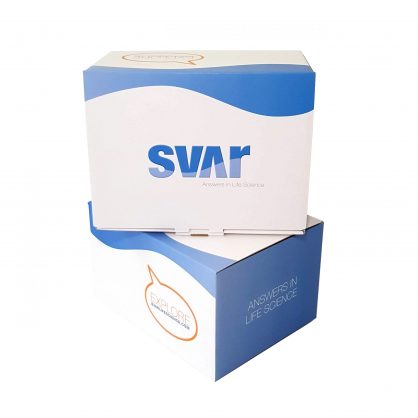Complement C4d ELISA Kit
Complement C4d ELISA Kit Developed and Manufactured by Svar Life Science
Size: 1×96 wells
Standard Range: 0.3-13.2 ng/ml
Incubation Time: 2 hours
Sample Type: Plasma
Sample Size: 10 µl
For Research Use Only
Controls Included
Assay Background
The complement system plays an essential role in autoimmune and infectious diseases. There are three pathways of complement activation; the classical, the alternative and the lectin pathway. The C4d protein is a product of the classical and the lectin pathways.
C4d, a degradation end product produced during complement C4 activation, had been recognized as a biomarker for its stability and strong association with antibody-mediated rejection in the 1990s and in the last twenty years, the potential importance of C4d in SLE as a tool for diagnosing and monitoring SLE was highlighted (1). Particularly, C4d associates with SLE nephritis (2). In primary Sjogren’s syndrome (pSS) the level of C4d correlates with anti-SSB and κ/λ ratio and is suggested to be an appropriate marker of antibody response and complement activation in pSS patients with auto-antibodies (3,4). Plasma level of C4d has been shown to be significantly higher in patients with antibody–associated vasculitis with active disease compared with patients with lupus nephritis and normal controls (5). Peritubular C4d deposition is a significant predictor of long-term graft survival rates and to be of prognostic significance (6). C4d, is increased in biological samples from lung cancer patient and is associated with poor prognosis of lung cancer at a very early stage (7,8). C4d is increasingly recognized as a potential biomarker where antibodies can cause tissue damage, such as systemic autoimmune diseases. C4d has the potential to detect patients at risk for the consequences of antibody-mediated disease. Furthermore, the development of new therapeutics that block complement activation makes C4d a marker with potential to identify and monitor patients who may possibly benefit from these drugs (9). Complement assays based on detection of linear neoepitopes has been reported to have an advantage compared to conformational epitopes, as it reduces the risk of false positives and increases specificity (10). This complement assay is based on the detection of the short linear C4d neoepitope exposed at the cleavage site of C4 after activation.
Related Products
Complement MBL Pathway ELISA Assay Kit
Complement TCC ELISA Assay Kit
Complement Alternative Pathway ELISA


